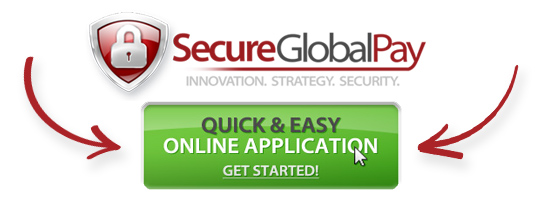
What is a Chargeback?
What is a Chargeback? Put simply, a chargeback is a reversal of a credit-card transaction. Chargebacks can occur for many reasons. But regardless of the reason, a chargeback means that a merchant ends up providing a product or service for free. In addition, the merchant is usually required to pay additional fees in the form of chargeback penalties.
Transaction disputes occur most often occur due to:
- Fraud
- Customer disputes (lost/damaged items, etc.)
- Processing errors
- Charge authorization issues (e.g., customer did not recognize transaction on bill)
- Issues with duplicate/repeat requests
Chargebacks impede merchant business. Merchants seeking to process online transactions should take time to read a merchant bank’s chargeback rules. Reputable banks provide fraud protection for merchant customers.
Merchants can also take steps to limit and/or prevent transaction disputes on their own.
Understanding Chargebacks
It is estimated that approximately half of all global consumers will initiate a chargeback through their issuing bank.
Chargebacks were first created to protect consumers against credit card fraud. The 1978 Fair Credit Billing amendment (§ 161. Correction of billing errors) to the Truth in Lending Act established the basis of the dispute resolution system we know today. The term “chargeback” is recent. Chargebacks are considered a leading indicator of a company’s health.
Chargebacks have grown almost 200 percent in the last 2 years. 1.9% of total annual merchant revenue is lost to transaction reversals. The total volume of chargebacks in dollars is expected to exceed 40 billion before 2025.

Why Chargebacks Occur
Major card networks such as Visa and MasterCard pair reason codes with chargeback notifications to clarify the reason for the dispute action. Reason codes can vary but tend to fall into one of three broad categories.
- True Fraud. This accounts for 5% – 10% of all chargebacks. These are charges laid against the card due to criminal fraud or identity theft.
- Friendly Fraud. This covers 60% – 80% of all chargebacks. This occurs when a customer deliberately disputes a valid transaction in an effort not to pay for a product or service. Sometimes charges are disputed out of confusion or impatience with the merchant. This is also friendly fraud.
- Merchant Error. This accounts for 10% – 20% of all chargebacks and reflects errors on the merchant’s part, such as erroneous billing of a customer credit card.
Consequences of Chargebacks
Transaction disputes are time-consuming and distract attention from business priorities. It typically takes 30 days to work through a transaction dispute with a bank, and up to 75 days for a credit card company to work through a chargeback and come to a final decision. When disputes emerge between a customer and a merchant, banks typically side with the customer.
Merchant Responsibilities & Penalties
It is the merchant’s job to prove the validity of the charge and furnish proof the charge was initiated by the customer. As mentioned above, this is a time-consuming process. Merchants are also required to assume responsibility for chargebacks that are the result of customer service and merchant errors. (E.g., if the merchant cannot process EMV chip transactions, and the customer has an EMV card, the merchant is liable for the chargeback.)
Banks charge fees for processing transaction disputes. These range from $20-$100 and can sometimes be 2.5 times the transaction value.
Prioritize Customer Satisfaction
Meeting customer expectations accurately will reduce the likelihood of a transaction dispute. Effective communication is an essential part of customer service. Effective communication and transparency will help prevent fraud within your own organization.
- Train staff not to process transactions with declined authorizations or without customer signatures
- Accurately communicate prices and fees so the charges that appear on the customer’s statement do not come as a surprise
- Ensure the transaction information on the receipt is accurate and legible
- Ship merchandise before processing the credit card transaction
- Be vigilant about voiding duplicate transactions made in error and store credit-card information securely
- Ensure your return and refund policies are clear and promptly cancel transactions when requested by the customer
How can SecureGlobalPay Help?
SecureGlobalPay is an industry leader in online processing. Our staff is experienced in working with high-risk merchants. Allow us to help develop a plan to help reduce your liability and protect you from transaction disputes. Complete our secure online application and begin processing payments in as little as 24 – 48 hours.



